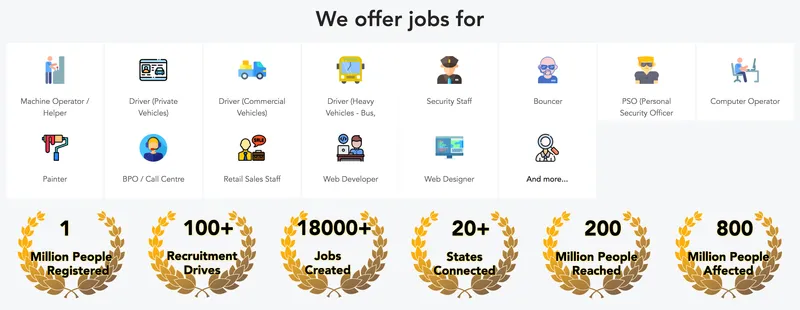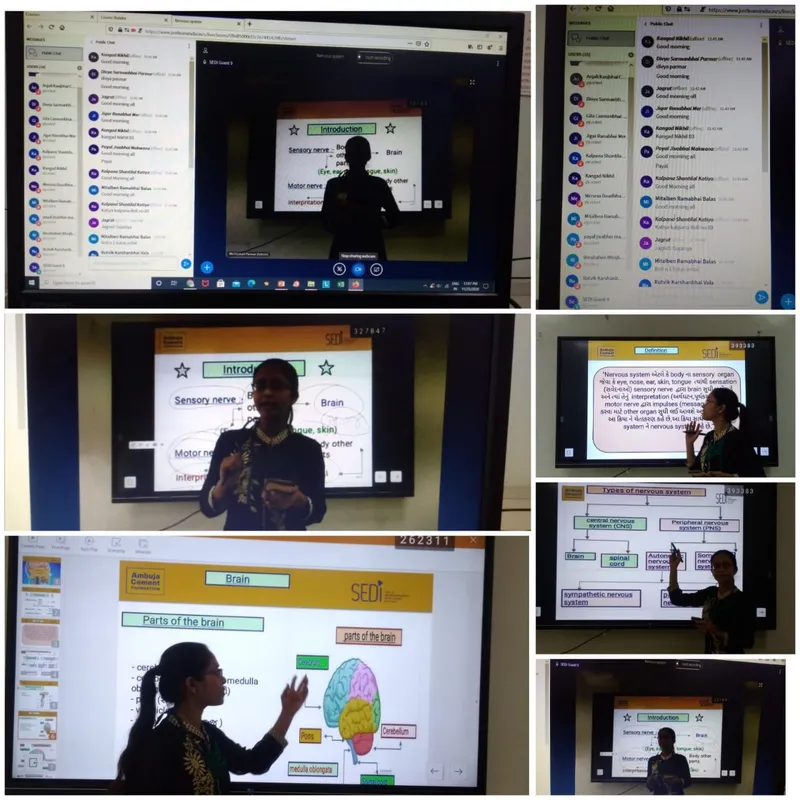These two startups are helping blue-collar workers get employed during the pandemic
JustRojgar, a startup aiding blue-collar workers, and Spayee, an edtech startup and one of YourStory’s Tech30 startups of 2020, are on a mission to aid those who have lost their livelihoods during the pandemic.
The COVID-19 pandemic has obviously had an adverse effect on the Indian economy, with lakhs of jobs lost, and daily life getting increasingly difficult for the common man. As many businesses shut down overnight, blue and grey collar employees lost their livelihoods and were left to fend for themselves with very little.
According to a report by Betterplace, a platform for blue-collar workforce management, more than 10 lakh blue-collar jobs are estimated to be lost due to the ongoing pandemic. But there is hope, as many good samaritans and organisations have have come forward to help the unorganised sector in these trying times. Two startups leading the way are JustRojgar and Spayee.

(L-R) Abhishek Chola, JustRojgar and Sandeep Singh, Spayee
JustRojgar Solutions Pvt, Ltd. is an innovative workforce startup that aims to groom the blue-collar workforce while connecting them to the right employers. The company has a strong base in approximately 20 states across India. They have a total of 55+ recruitment centres or Rojgar Kendras across India, with one residential training centre in Gurgaon, Haryana. The lockdown, though, made it almost impossible for JustRojgar to connect with the field workers and provide them help.
Enter edtech startup Spayee, one of YourStory’s Tech30 startups of 2020, who helped JustRojgar to shift online and train thousands of manpower while making them job-ready.
Bridging the gap between job seekers and providers
“On the job-seeker side, JustRojgar has lakhs of candidates registered with them from across India - especially from Tier II and Tier III cities. We offer them online training, re-skilling and skill up-gradation opportunities in new and upcoming areas where there are jobs,” says Abhishek Chola, Founder, JustRojgar.
“On the employer side, we work with some of the biggest companies like Jindal Steel, Bajaj Motors, Havells India, Spark Minda, Patanjali Ayurveda, Welspun, etc. and help them get a workforce that is trained in skills relevant to the job profiles,” he adds.
JustRojgar has partnered with organisations like Ambuja Cement Foundation, Macmillan Education, British Council, Tripura Govt., FICSI (Food Industry Capacity and Skill Initiative), and Hamdard Foundation among others.
However, there still remains a large pool of untapped informal sector candidates in India who need training and upskilling before applying for a job. Spayee’s intervention came in at the right time and posed as a major helping hand for several organisations who were scrambling to make suitable arrangements for the large number of affected people in the unorganised sector.
“The private sector could make use of Spayee to train lakhs of people and provide them with jobs. This helped in the reduction of recruitment and operational costs as Spayee is economical and you don’t need extra staff to manage the platform. The seamless shift to an online model has been a cakewalk,” says Abhishek.

A screengrab from the website
Every individual worker gets a unique id and password through which they can access their courses and live sessions on the mobile app.
“Spayee is offering a whole technology platform in the form of web and mobile apps for JustRojgar to help them train these workforces. It is an end-to-end platform for delivery of courses (both self-paced and instructor-led), tracking progress of these workers and awarding them certificates,” says Sandeep Singh, Co-founder, Spayee.
JustRojgar conducts courses in local languages also like Marathi, Gujarati, Malayalam, Hindi, English etc. according to the regional requirements.
Creating an impact
Ankit Kumar from Haridwar, had enrolled with Just Learn, an initiative by JustRojgar that offers various e-learning opportunities for their Assistant Electrician course.
He says, “I did not have a job before this. I am a graduate, and after COVID-19, the situation became even more difficult. I got to know about the Just Learn platform of JustRojgar Solutions from my friend who had already enrolled.”
“Thanks to the support of the team, I got a placement at Exide Industries through Just Rojgar Solutions in Bhagwanpur as an electrician with a starting salary of Rs. 9000 per month,” he added.

One of the sessions
Spayee has raised $150K in the angel round from one of their top customers. Their founding team was also a part of Times Internet’s TLabs Incubation programme back in 2014. “We are planning to raise the next round of funds to push our growth higher, build a team and reach out to new markets and audiences,” says Sandeep.
Challenging times
“Job seekers in this category are based in the interiors of the country. Some of them have day jobs, so can attend classes only in the evening. Some have only one device at home used by parents and themselves - so device availability at all times is an issue,” says Abhishek.
He adds that these workers need to be constantly motivated by the trainers so that they continue learning and upgrading their skills. However, attendance and interest in the programmes have never been an issue.
Talking about the road ahead, Sandeep says, “We want to become the go-to platform for Indian course creators who want to monetise their course content. We believe that we have a great value proposition in the global market too. We are planning to take Spayee global by 2022.”
“On the product front, we are working towards creating an exclusive B2B marketplace for Spayee customers, where content creators can collaborate among themselves and generate more sales,” he signs off.
Edited by Anju Narayanan








